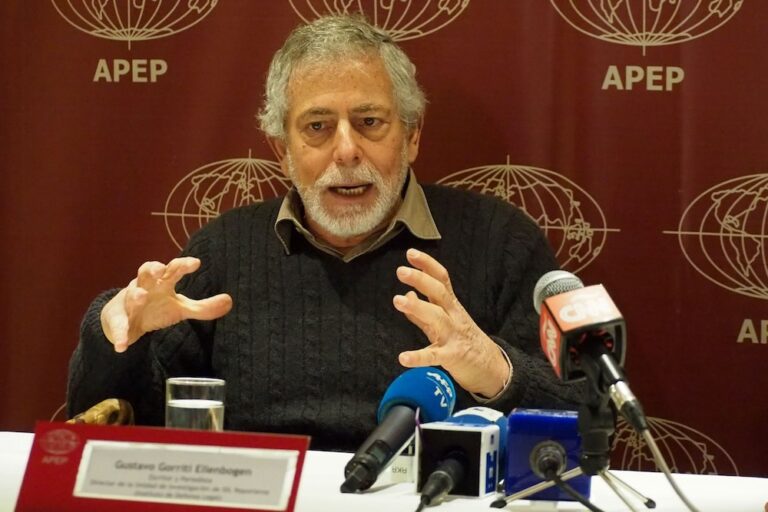Fernando Alfaro Venturo, director and host of the political analysis programme Line of Vision (Línea de Mira), protested a decision to stop broadcasting reruns of the show, which have been aired every Sunday night for over four years. The programme broadcasts live every Sunday at 7:00 a.m. (local time) and reruns air at 10:00 p.m. […]
Fernando Alfaro Venturo, director and host of the political analysis programme Line of Vision (Línea de Mira), protested a decision to stop broadcasting reruns of the show, which have been aired every Sunday night for over four years. The programme broadcasts live every Sunday at 7:00 a.m. (local time) and reruns air at 10:00 p.m. (local time), on the Canal 6-Video Oriente TV station, in Pucallpa, department of Ucayali. However, from now on, music videos will be broadcast in place of the later show.
In a telephone interview with IPYS, Alfaro Venturo suggested that the decision was made because of a commentary aired on his programme on the morning of Sunday 30 January 2000. The commentary referred to a 28 January fifteen minute interruption of the programme Amazon Update (Amazonía al día), directed by journalist Leon Piña and broadcast Monday to Friday by Canal 6. The interruption occurred precisely at the moment when the journalist began to report on a clash between members of the Peruvian National Police and the Navy, which had occurred a few days earlier in the city of Pucallpa, in full public view. During the interruption, the station broadcast music videos. When the show started up again, there was no further mention of the topic.
Another comment Alfaro Venturo made on his programme referred to Teddy Dassa, director of the programme Controversy (Controversia), also broadcast by Canal 6. Dassa allegedly stated that unfortunately, in the future “he would not comment on any topics relating to the authorities because they had just prohibited him from doing so.”
During the interview with IPYS, Alfaro Venturo further noted that about a month earlier he received a suggestion from the station’s owner, Emerson Benzaquén, that he not broach any topics that could affect president Alberto Fujimori or presidential advisor Vladimiro Montesinos.
The journalist asserted that media owners pressure press workers, because they themselves are pressured through the fundamental sustenance of all communications media: publicity. The largest advertisers in Pucallpa’s main media are the Regional Transitional Administrative Council, the Peruvian Navy and the San Juan Brewery.
There is no proof that points to the authorities’ direct intervention in this case. Nevertheless, on a number of occasions, owners have opted to censor their own programmes for fear of reprisal if they broadcast opinions that criticise the government.


